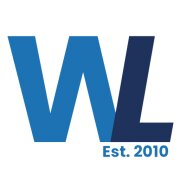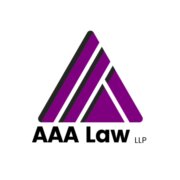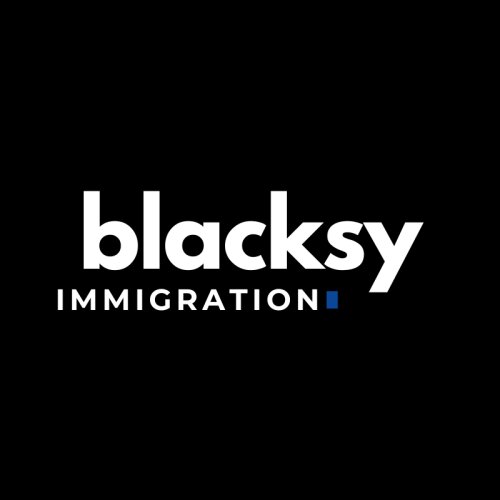Best Aviation Lawyers in Toronto
Share your needs with us, get contacted by law firms.
Free. Takes 2 min.
List of the best lawyers in Toronto, Canada
About Aviation Law in Toronto, Canada
Aviation law in Toronto, Canada refers to the legal framework that governs all aspects of aviation, including aircraft operations, safety regulations, airport management, and air transportation. It encompasses various federal and provincial laws and regulations aimed at ensuring the safety and efficiency of the aviation industry in Toronto.
Why You May Need a Lawyer
There are several situations where you may require legal help in aviation:
- If you have been involved in an aircraft accident and need assistance with insurance claims or seeking compensation for injuries.
- If you are facing legal issues related to aircraft leasing, purchase, or financing.
- If you are an aviation professional or company facing regulatory compliance matters or licensing disputes.
- If you need advice on intellectual property protection for aviation-related innovations or technologies.
- If you require legal representation for disputes involving airlines, airports, or aviation authorities.
Local Laws Overview
In Toronto, Canada, aviation law is primarily governed by federal laws established by Transport Canada. These laws include the Aeronautics Act, the Canadian Aviation Regulations (CARs), and related legislation. The regulatory framework covers various aspects of aviation, such as flight operations, airworthiness, personnel licensing, and aviation security.
Additionally, local laws may be applicable, such as municipal bylaws governing noise regulations around airports or land-use planning regulations affecting airport development projects. It is essential to consult with a lawyer familiar with both federal and local laws when dealing with aviation legal matters in Toronto.
Frequently Asked Questions
Q: How can I legally operate a drone in Toronto?
A: Operating drones in Toronto is subject to federal regulations set by Transport Canada. You must follow the rules outlined in the Canadian Aviation Regulations, including obtaining a drone pilot certificate and registering your drone, if applicable.
Q: What compensation can I seek in an aviation accident case?
A: Compensation in an aviation accident case may include medical expenses, lost wages, pain and suffering, property damage, and in some cases, punitive damages. The specific compensation will depend on the circumstances of the accident and the extent of the damages.
Q: Are there noise regulations for airports in Toronto?
A: Yes, certain municipalities around Toronto's airports have specific noise regulations in place to mitigate the impact of aircraft noise on nearby communities. These regulations restrict aircraft operations during specific hours and may impose penalties for non-compliance.
Q: Can I sue an airline for flight delays or cancellations?
A: It may be possible to sue an airline for flight delays or cancellations, particularly if the delay or cancellation was due to the airline's negligence or a breach of contract. However, it is recommended to consult with a lawyer to evaluate the specific circumstances and determine the viability of a legal claim.
Q: What are the requirements for obtaining an aircraft maintenance engineer license in Toronto?
A: To obtain an aircraft maintenance engineer license in Toronto, you must meet the requirements outlined by Transport Canada, including completing an approved training program, accumulating necessary practical experience, and passing the relevant examinations.
Additional Resources
Here are some additional resources related to aviation law in Toronto, Canada:
- Transport Canada - The federal agency responsible for overseeing aviation regulations and safety: tc.canada.ca/en
- Greater Toronto Airports Authority (GTAA) - Manages and operates Toronto Pearson International Airport: torontopearson.com
- Nav Canada - The organization responsible for ATC (Air Traffic Control) services in Canada: navcanada.ca
Next Steps
If you require legal assistance in the field of aviation in Toronto, it is recommended to:
- Research and select a lawyer with expertise in aviation law and experience in handling similar cases or issues.
- Schedule a consultation with the chosen lawyer to discuss your specific situation, understand your legal rights and options, and assess potential courses of action.
- Provide all relevant documentation, evidence, and information to your lawyer to support your case or matter.
- Follow your lawyer's guidance and instructions regarding legal procedures, negotiations, or litigation.
Remember, seeking legal advice promptly and acting in accordance with the law is crucial when dealing with aviation-related legal matters in Toronto, Canada.
Lawzana helps you find the best lawyers and law firms in Toronto through a curated and pre-screened list of qualified legal professionals. Our platform offers rankings and detailed profiles of attorneys and law firms, allowing you to compare based on practice areas, including Aviation, experience, and client feedback.
Each profile includes a description of the firm's areas of practice, client reviews, team members and partners, year of establishment, spoken languages, office locations, contact information, social media presence, and any published articles or resources. Most firms on our platform speak English and are experienced in both local and international legal matters.
Get a quote from top-rated law firms in Toronto, Canada — quickly, securely, and without unnecessary hassle.
Disclaimer:
The information provided on this page is for general informational purposes only and does not constitute legal advice. While we strive to ensure the accuracy and relevance of the content, legal information may change over time, and interpretations of the law can vary. You should always consult with a qualified legal professional for advice specific to your situation.
We disclaim all liability for actions taken or not taken based on the content of this page. If you believe any information is incorrect or outdated, please contact us, and we will review and update it where appropriate.














